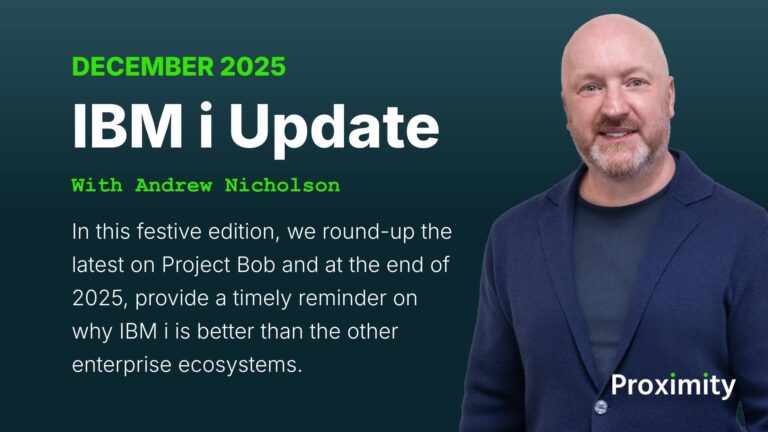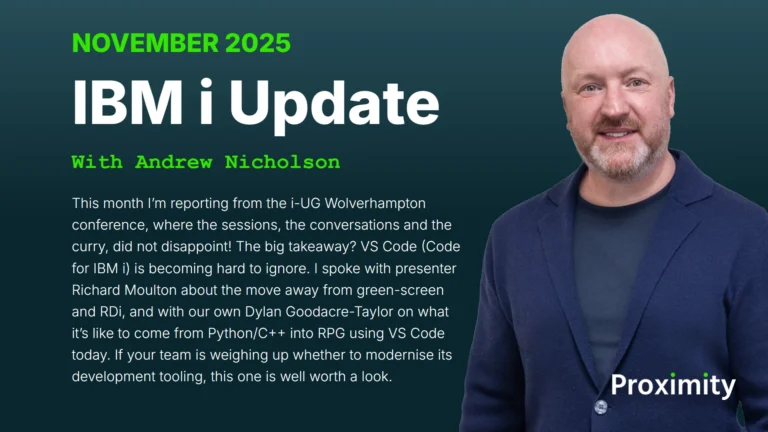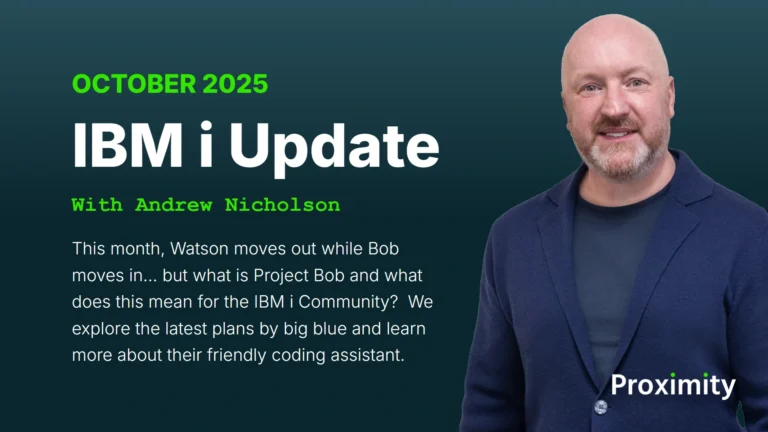A common theme throughout our blog posts on this website and others is ensuring that organisations focus on their overall business objectives and make sure that IBM i development and IBM i modernisation projects are delivered using a phased approach.
In the latest IBM Systems magazine article about developing modern IBM i applications, Tim Rowe, business architect, Application Development and Systems Management for the IBM i says:
“IBM i modernization is a continual process. What’s important is providing solutions that make end users happy without inhibiting a company’s ability to run its business”.
In one of the article’s sidebars, Duncan Kenzie, Chief Knowledge Officer for BCD Software (now Fresche Solutions) argues that:
“Modernizing your applications is no longer a luxury. It’s a necessity. Users increasingly demand modern interfaces because they use them in every other aspect of their life, from smartphones to tablets to touch-PCs”.
So, what do we mean by IBM i modernisation? Well, according to the IBM Redbooks publication, ‘Modernize IBM i Applications from the Database up to the User Interface and Everything in Between’:
“Modernization can be anything from screen scraping an application to converting it to a tiered or service-orientated architecture (SOA). Modernization can consist of any permutation and combination of using an independent software vendor (ISV) solution, redesigning a database, redesigning and recoding application programs, coding new programs, using new programming languages, and writing new applications”.
The business benefits of updating and modernising IBM i-based applications and software can be significant. The IBM Systems magazine article suggests that many developers see a 20-50% improvement in productivity by switching from green screens to a modern IDE (integrated development environment).
In his sidebar, Kenzie argues that RPG programmers should not see modernisation projects as being daunting or risky. He suggests that programmers can deliver a greatly enhanced user experience or user interface (UI) without having to tinker with their IBM i business logic by taking a phased approach to the project.
“Tools that transform the 5250 datastreams or take advantage of RPG Open Access (OA) require little or no programming to use, yet produce greatly enhanced UIs for customers and end-users. These are low-risk, rapid-deployment solutions”.
Once that level of modernisation has been mastered, programmers can start using PHP or stateless RPG code for more scalable and flexible applications.
This particular point, about PHP development on the IBM i is picked up by Rowe. He suggests that:
“it’s pretty easy to get started by creating a web page that can easily tie into either your DB2 for i or call an RPG program”.
It is also worth noting that the leading provider of an enterprise-grade application server for PHP, Zend.
Their Zend Server product runs natively on the IBM i and is available as a simple and free download to all IBM i users.
PHP itself, is the world’s most popular programming language for web and mobile applications and is a language that BCD Software has been supporting since it first launched a specialised PHP version of WebSmart all the way back in 2007.
If you are looking to deliver web and mobile applications that are as secure, resilient and powerful as your existing green-screen applications, then the new range of bundles consisting of BCD Software’s WebSmart PHP solution and Zend Server might be the answer.
There are four different options of the WebSmart PHP and Zend bundles available, which have been specifically designed for organisations who are either new to PHP on the IBM i, currently developing business-critical applications in PHP on the IBM i, or are already using WebSmart PHP and want either Zend Server Professional or Zend Server Enterprise. These three bundles include the option of the ‘JumpStart package’ which gives you access to BCD Software’s exclusive UK and Ireland partner, Proximity’s development services to get you started developing PHP applications on the IBM i.
The final bundle is for those organisations simply looking for either Zend Server Professional or Zend Server Enterprise versions only.
Want further information? Contact us now about PHP on i, WebSmart PHP and Zend Server.





